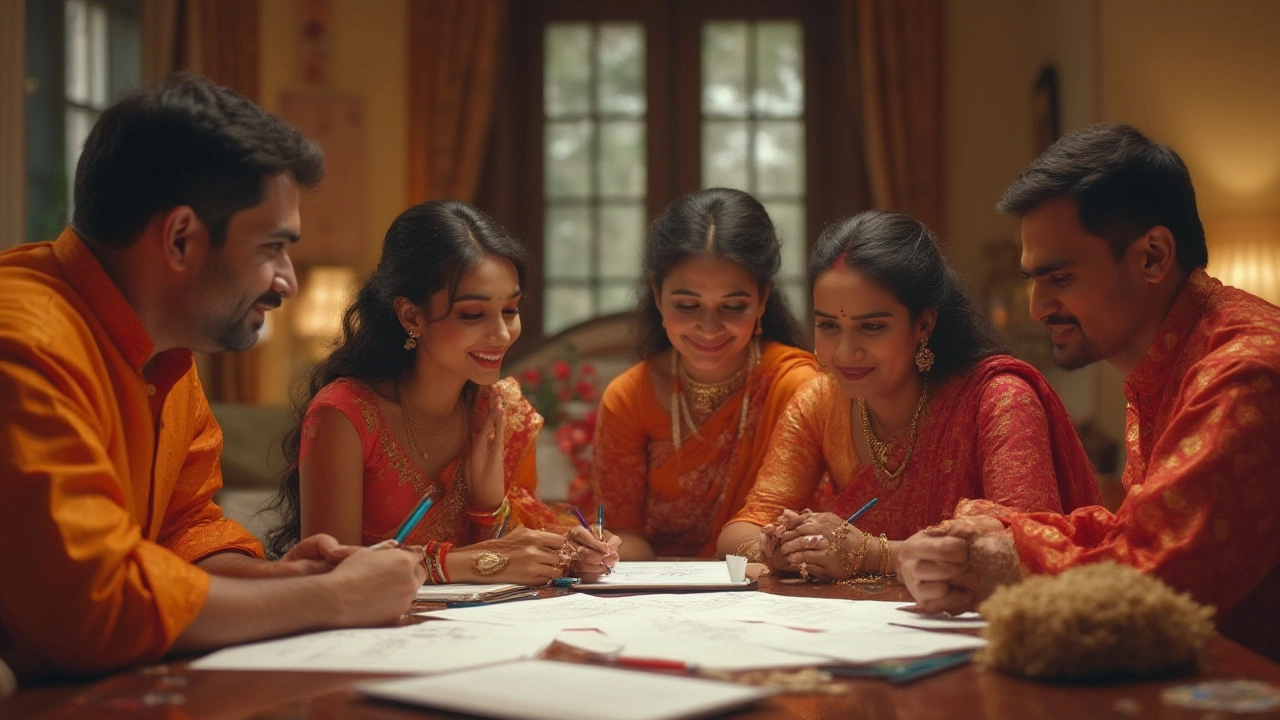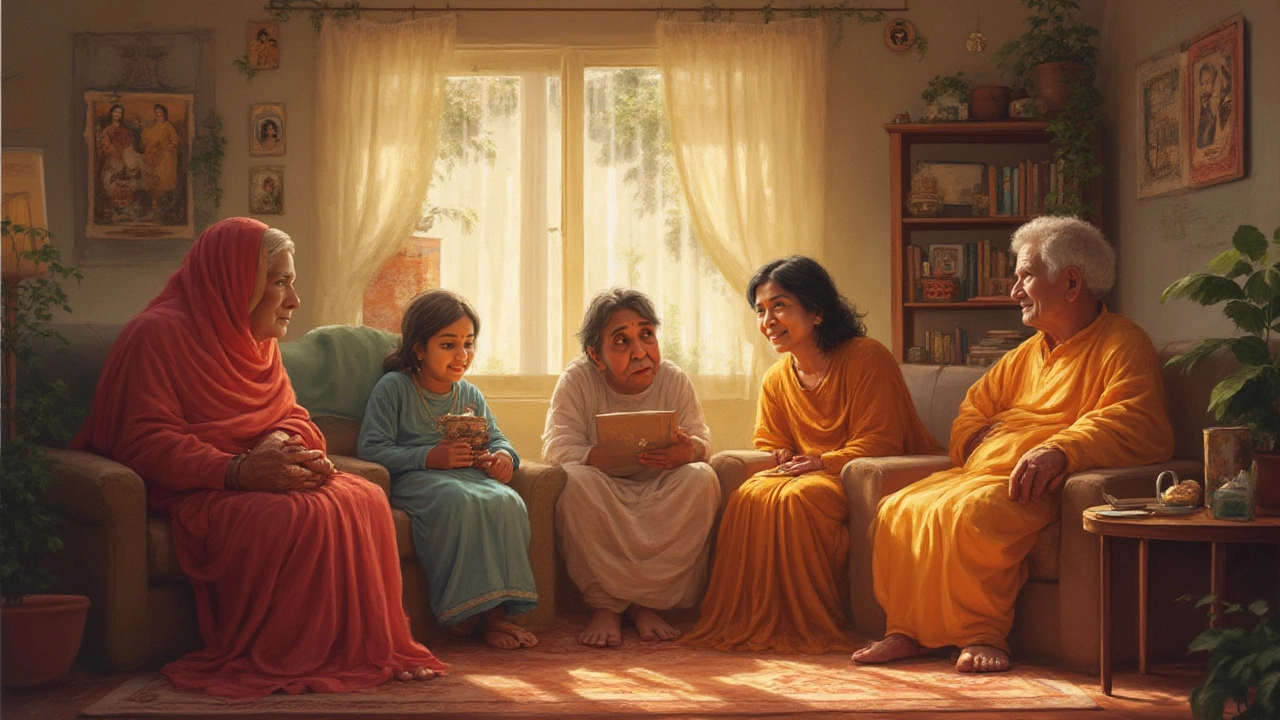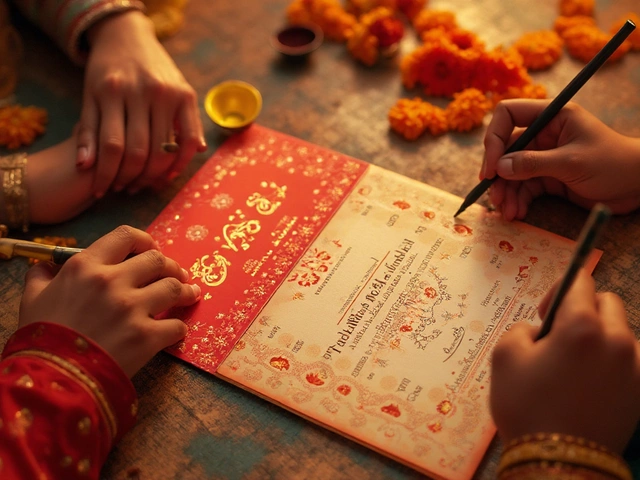
That awkward moment when the wedding conversation turns to who actually pays for what—it’s no surprise people still Google this daily. Most couples today pay for a chunk themselves, but families still want to help out or at least know what’s expected. If you’re the parents of a bride, you probably wonder how much you’re on the hook for. Do you stick to tradition, split it fair, or politely suggest everyone just elopes to Brighton Pier with some fish and chips? Money talk is never comfortable, but it’s so necessary—especially when weddings in the UK now average £19,184, according to Hitched’s 2025 Wedding Report.
Where the Tradition Came From (And Whether It Still Matters)
Once upon a time, everyone knew the script: the bride’s parents picked up the tab, the groom’s family might offer the champagne, and the couple mostly picked songs for the playlist. That rule’s pretty ancient now, but it still shapes expectations. Back in Victorian Britain (picture frilly dresses, stuffy drawing rooms), paying for your daughter’s wedding cemented social ties and announced, “Look how well we’ve done.” It also acted as a very subtle nudge—parents could expect a quiet influence over wedding plans in exchange for the cash.
Fast-forward to 2025 and the landscape looks nothing like it did. Families are diverse, finances are more complicated, and most couples don’t want a parent calling every decorative shot. According to YouGov, only about a third of UK weddings last year relied on the bride’s parents as the sole funders. It’s far more common for couples and both sets of parents to pitch in together, or for everyone to chip away at a particular part (venue, dress, honeymoon—you get it).
Does that mean tradition’s dead? Not really, but it’s up for renegotiation. Some parents still feel a tug to take the lead, especially for a first daughter or a family that’s accustomed to following old-school etiquette. But as couples marry later, own their homes, or have different ideas for the big day, the role of the parents has become more flexible than ever. And honestly—no one likes surprise bills in the post or a feeling of being sidelined. The safest approach? A good old-fashioned family meeting and laying cards (read: spreadsheets) on the table.
The Real Numbers: What Are Parents Actually Paying?
Let’s look at the numbers. In 2025, the average UK wedding runs close to £20,000, but actual budgets swing wild—from intimate gatherings on a £3k shoestring to £100k grand affairs in a Scottish castle. Where do the bride’s parents land in all this?
A Hitched survey this year found that on average, parents of the bride in the UK cover about a third of the total cost—so roughly £6,000. Of course, this is averages talking; some put in much less, others a lot more (especially if they come from places where footing the whole bill is still the cultural norm). Older (pre-2020) etiquette guides talk about parents paying for everything from the dress and ceremony to the reception and flowers, but hardly anyone follows this to the letter now. Real families tend to divide up the costs based on who can honestly afford it.
| Wedding Element | Traditional Responsibility | 2025 Reality |
|---|---|---|
| Venue & Reception | Bride's parents | Usually shared |
| Wedding Dress | Bride's parents | Often split or covered by bride herself |
| Catering | Bride's parents | Often shared or covered by couple |
| Drinks | Groom's parents | Sometimes shared |
| Flowers & Decor | Bride's parents | Anyone who wants to contribute! |
| Photographer | Bride's parents | Usually couple or joint family cost |
What really matters is that everyone’s honest about what they can give. If the bride’s parents have the means and want to take on a larger share, great. If not, that’s perfectly okay. Most couples today value peace of mind and a low-pressure celebration way more than sticking to rules from another era.

Modern Etiquette: Who Decides and How?
Money etiquette changes quicker than wedding dress trends, and social pressure can sneak in anywhere. So what actually works now? The answer is, the best weddings start with open, sometimes uncomfortable, conversations way before any vendors are booked.
Step one: everyone sits down—bride, parents, the partner, and if they want, the other set of parents. (Coffee and cake help.) Try to get specific early. It’s a lifesaver to know if Mum and Dad want to cover a particular venue, host the rehearsal dinner, or just want a say when it comes to flowers. Be prepared for surprises; parents aren’t mind-readers, and couples aren’t always clear about costs.
Here’s what helps: a detailed list of top priorities for the couple. If having hundreds of guests isn’t the dream, cutting the list can save thousands. Maybe the parents prefer to give a lump sum so the couple can choose how to spend it. Other families like picking elements—“We’d love to buy your dress” or “Let us handle the flowers as a gift.” No single approach is right, but clarity avoids tension. If there are other children or future weddings ahead, keeping things fair over the years is something to consider, too.
Etiquette also suggests that whoever pays should be thanked publicly—whether that’s via a toast, a mention in the program, or just a heartfelt note later. Feeling valued beats fancy chair covers every time. And while it’s great for parents to be generous, no couple wants them to overextend their savings or retirement just to upgrade the cake. That’s a recipe for future regrets, not party memories.
Tips for Navigating the Money Talk (Without Tears or Drama)
Worrying about upsetting family with talk of budgets? You’re not even close to alone. Here’s how to make the conversation easier and way less awkward.
- Start early. Don’t wait until you’ve booked the vintage car. The sooner everyone knows the plan, the less heartbreak later.
- Be honest about expectations. If you can only afford £2,000, say so. If you absolutely can’t see yourself paying for a band, mention that up front.
- Break down costs. Share a realistic budget list—venues, dresses, catering, the works. Transparency helps parents understand where their money will actually go.
- Offer options. If parents can’t pay cash, maybe they can do something else—host the family, help with invites, or craft the favors.
- Stay respectful (and open-minded). It’s tempting to argue, but listening to parents’ worries can reveal what’s behind the concern—emotions, not just chequebooks, are usually at stake.
- Document what’s agreed. A simple email summary or shareable spreadsheet helps avoid future “I thought you were covering the flowers” moments.
And if a conversation goes off the rails, step back, take a breather, then try again. People rarely regret having talked too much about money; it’s the silence that leads to blow-ups.

When Parents Can’t—or Won’t—Pay: Alternatives and Etiquette Workarounds
Sometimes, despite everyone’s best hopes, parents just can’t afford to chip in—or they have strong beliefs about wedding spending. So what do you do if you’re a bride in this spot? Or if you’re the parent, feeling guilty you can’t do more?
The honest answer is: you plan according to your real budget, not a fantasy one. The average age of marriage is up (it’s now 34 for women in the UK), and more couples prefer saving up themselves, sometimes waiting years to have the kind of celebration they want. Elopements, micro-weddings, and “family-only” ceremonies have taken off post-pandemic, and for lots of couples, they feel more personal and special than a massive, wallet-busting bash.
If tradition still tugs at your heart, there are ways to include it without major costs. Maybe parents give a meaningful piece of jewelry, help plan the ceremony, or write a toast. Some families put their gift towards the honeymoon or home deposit instead of the big day. A recent Brides Magazine survey found nearly 60% of UK couples in 2025 preferred practical support—like help finding vendors, baking the cake, or crafting centerpieces—over cash contributions.
One more thing: don’t forget about wedding gifts from extended family and friends. Even if parents can’t cover traditional wedding costs, loved ones often want to contribute in creative ways. Group gifts, like covering the music or drinks, are more popular than ever with today’s tech (just look at wedding registry websites with “funds” for everything from DJs to dog-sitters).
At the end of the day, what your guests and family remember isn’t the bill—but how much the celebration felt like you.



Comments
Post Comment